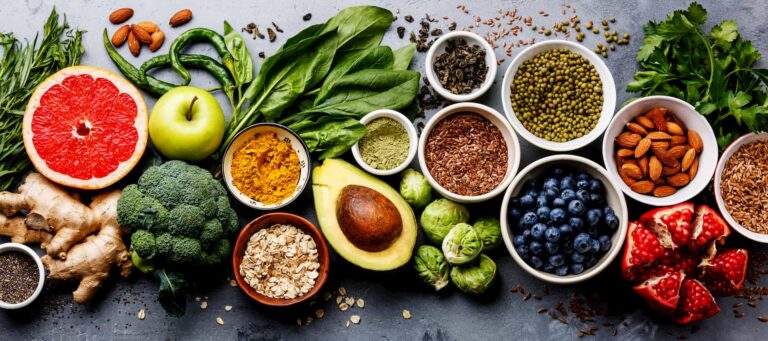
Which foods are rich in iron? Let’s find out with the iron-rich food table
What is the purpose of iron? Let’s find out more about its importance […]
People suffering from iron deficiency or increased bodily needs for this nutrient can also benefit from a varied and balanced diet. However, when iron is low, it may be useful to pay more attention to foods rich in this nutrient and follow iron-rich diets after consulting your doctor. In this in-depth study, we will find out which foods can help to maintain normal body iron levels.
Iron is an essential nutrient for the well-being of our body. In addition to playing an important role in the production of haemoglobin, myoglobin and important enzymes such as cytochromes, iron is the basis of the normal functioning of the immune system and normal cognitive function. Iron also plays a central role in the growth and normal development of children and adolescents.
Under normal health conditions, a varied and balanced diet is sufficient to meet body iron requirements. However, some physiological conditions (menstruation, pregnancy and breastfeeding) or pathological conditions (diseases that decrease iron absorption) may lead to low sideremia or low haemoglobin values. In these cases, it is important to consult a doctor to investigate the causes of the deficiency and to set up a suitable therapy to rebalance the normal iron values in the body. In general, amongst the main remedies for iron deficiency, your doctor may recommend an iron-rich diet.
Let’s see what iron-rich foods are useful for our body.
Meat (especially turkey meat, horse meat and beef) is always the basis of iron-rich diets. Meat, in fact, contains significant amounts of haem iron, i.e., iron derived from the haemoglobin and myoglobin present in the tissues of the animal. Liver, spleen, offal and muscle are the parts richest in iron and most recommended for iron-rich diets.
In addition to being a valuable source of omega-3 fatty acids, fish is also an iron-rich food. Tuna, mackerel, anchovy, snapper and sardine are some types of fish frequently found in iron-rich diets. Amongst sea products, molluscs and crustaceans can also be an important source of iron.
Eggs are known as one of the most important sources of fat and protein. Egg yolk is also an important source of iron.
Legumes are valuable sources of plant protein and iron. In the case of iron, it is important to accompany the intake of legumes with foods rich in vitamin C to promote the absorption of inorganic iron contained in beans, chickpeas and lentils.
Whole grains and oat flakes are foods that are traditionally recommended to ensure the right daily intake of carbohydrates, B vitamins, fibre and minerals such as iron.
Mushrooms, especially driedmushrooms, are a food that often appears amongst iron-rich diets. On their own, or in combination with meat and vegetables, they can be a pleasant variation as part of vegetarian or vegan diets.
Green leafy vegetables and fruit are valuable sources of iron, folic acid and vitamins. Cabbage, broccoli and kiwi fruit, in addition to their significant amounts of iron, are foods that provide vitamin C, a nutrient that promotes the transport of inorganic iron within the cells of the intestinal mucosa. Furthermore, vegan and vegetarian diets require oranges, lemons and tomatoes: even though they do not contain high amounts of iron, these foods promote the absorption of iron thanks to their high vitamin C content.
Your doctor may also recommend, in combination with a varied and balanced diet, the use of a food supplement. The SiderAL® food supplement range containing Sucrosomial® Iron can be useful in cases of iron deficiency or increased iron needs.
The technology that guarantees the best absorption of Iron.
Find out moreRegistered Office Via Campodavela, 1 56122 Pisa
Tel. +39 050 7846500
Fax +39 050 7846524
C.F. / P.Iva / Reg. Impr. 01679440501
Cap.Soc. € 1.123.097,70
I.V. | REA 146259
pharmanutra.it